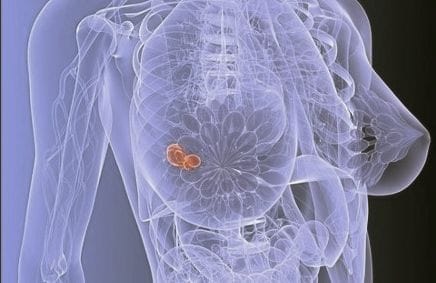January 13, 2022 – 08:46
x
If breast cancer has metastasized to lymph nodes in the armpit, extensive imaging studies are performed and tumor characteristics determined prior to surgical removal. The aim of the research set up in Maastricht UMC+ is to clarify the extent to which an accurate statement can be made about a possible response to chemotherapy prior to surgery. As a result, extensive surgery on the armpit may not always be required in the future. The KWF subsidizes the research with € 538,000.
In the Netherlands, one in seven women is diagnosed with some form of breast cancer during her lifetime. If at diagnosis there is a lymph node metastasis in the armpit, this has consequences for the treatment as well as for the prognosis of the patient. Currently, in the case of lymph node metastasis in the armpit, the treatment consists of chemotherapy followed by surgery. Previous research has shown that one in three patients no longer has metastases in the armpit after chemotherapy and that the lymph nodes are surgically removed ‘unnecessarily’. The problem is that the unnecessary removal of the gland can only be detected afterwards in the laboratory.
Okselling toilet
Until recently, the operation of the armpit consisted of an extensive removal of all lymph nodes in the armpit (axillary gland toilet). This operation is accompanied by many additional complaints, such as lymphedema, resulting in fluid accumulation in the arm concerned and restricted movement. New surgical procedures allow for much more selective surgery, but for the time being it is not possible to make an accurate statement about the possible response of the lymph node metastasis to chemotherapy prior to this operation. The research is aimed at accurate diagnosis of the status of the lymph nodes prior to surgery.
study grant
The research project, to which the KWF has awarded 538,000 euros in subsidy, aims to discover whether imaging studies (ultrasound, MRI and PET-CT) and tumor characteristics prior to surgery can be used to make a more accurate statement about a patient’s lymph node metastasis. According to research leader and nuclear radiologist Dr. Thiemo van Nijnatten, this will make it easier to determine in the future whether and to what extent armpit surgery should be performed on these patients. “As such, this research project contributes to an improved axillary treatment tailored to future patients.” health network. Towards a healthier life and sustainable healthcare.”
| Source: Maastricht University Medical Center+ |


